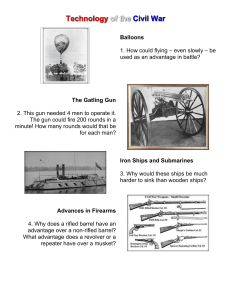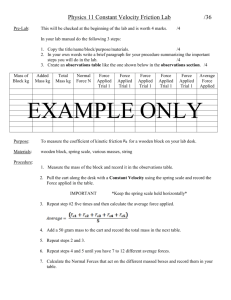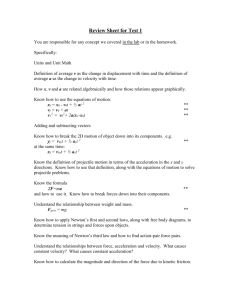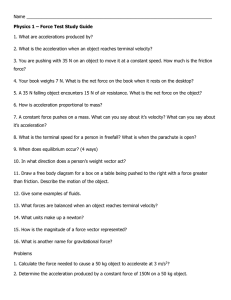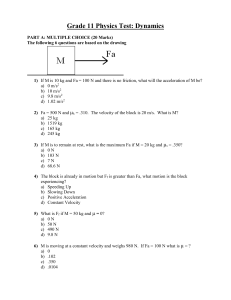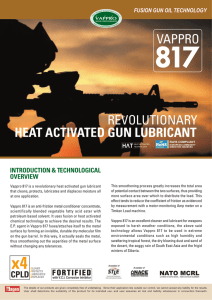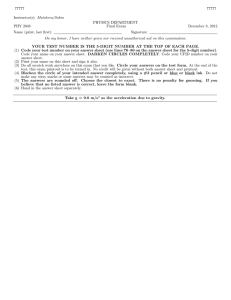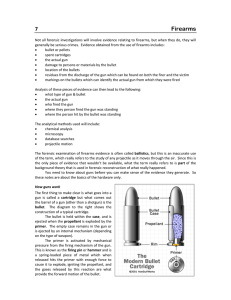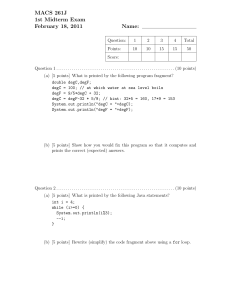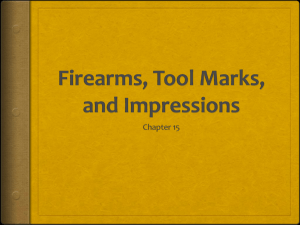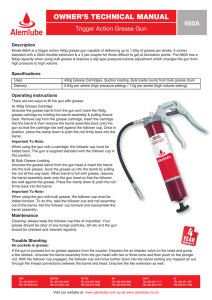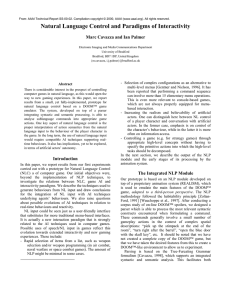Chapter 5 Practice problems for Physics- Net Force
advertisement
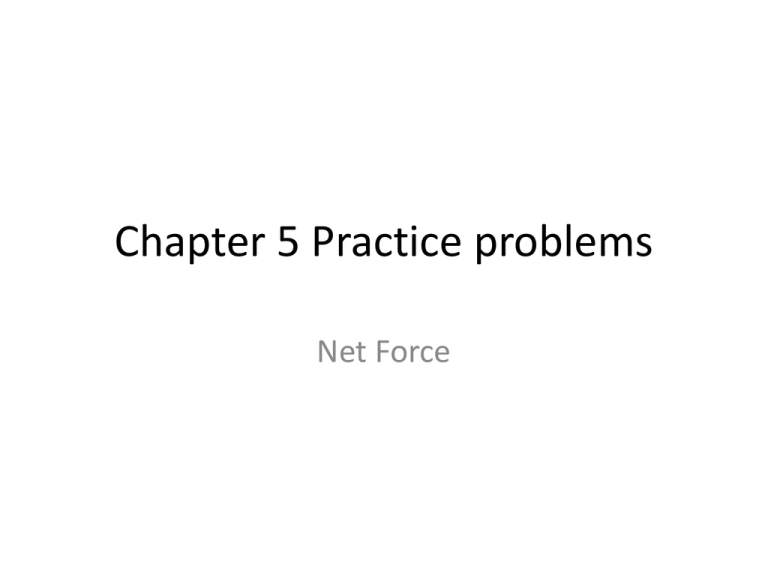
Chapter 5 Practice problems Net Force Sample #1 • Using Newton’s Second Law to find the net force on an accelerating object: • …. What net force is required to accelerate a 1500 kg race car act at +3.00m/s2? Sample #1 • Given: m = 1500 kg a =+ 3.00 m/s2 • Unknown: Force, F Sample #1 • Basic equation: • F = ma Sample #1 • Answer: 4500 N force Sample #2 • Finding force when acceleration must be calculated: Sample #2 • An artillery shell has a mass of 55 kg. The shell is fired from a gun leaving the barrel with a velocity of + 770 m/s. The gun barrel is 1.5 m long. Assume that the force, and thus the acceleration is constant while in gun barrel. What is the force on the shell while it is in the gun barrel? Sample #2 • • • • • Given: M = 55 kg vf = + 770 m/s vi = 0 m/s D = +1.5 m Unknown: force, F Basic equations: F = ma Vf2 =vi2 + 2ad Sample #2 • Answer: 1.1 X 107 N Sample # 2 • Solution: = • A = (+770m/s2) - 0 • 2(1.5 m) • a = +2.0 X 105 m/s2 ( in the direction of the velocity) • F = 55 kg +2.0 X 105 m/s2 Sample #3 • Calculating weight: • Find the weight of a 2.26 kg bag of sugar Sample #3 • g= 9.8 m/s2 • Equation: W = mg Sample #3 • Answer : 22.1 N Sample #4 • Sliding friction: • A smooth wooden block is placed on a smooth wooden tabletop. You find that you must exert a force of 14.0 N to keep the 40.0 N block moving at a constant velocity Sample #4 • A. What is the coefficient of friction for the block and table? • Given: FA = 14 N W = 40 N a = 0 • Unknown : Coefficient of friction = μ Sample #4 • Basic equation = F= ma Ff = FμFN Sample #4 Sample #4 • Because a = 0 the force you exert, FA must be equal to Ff
